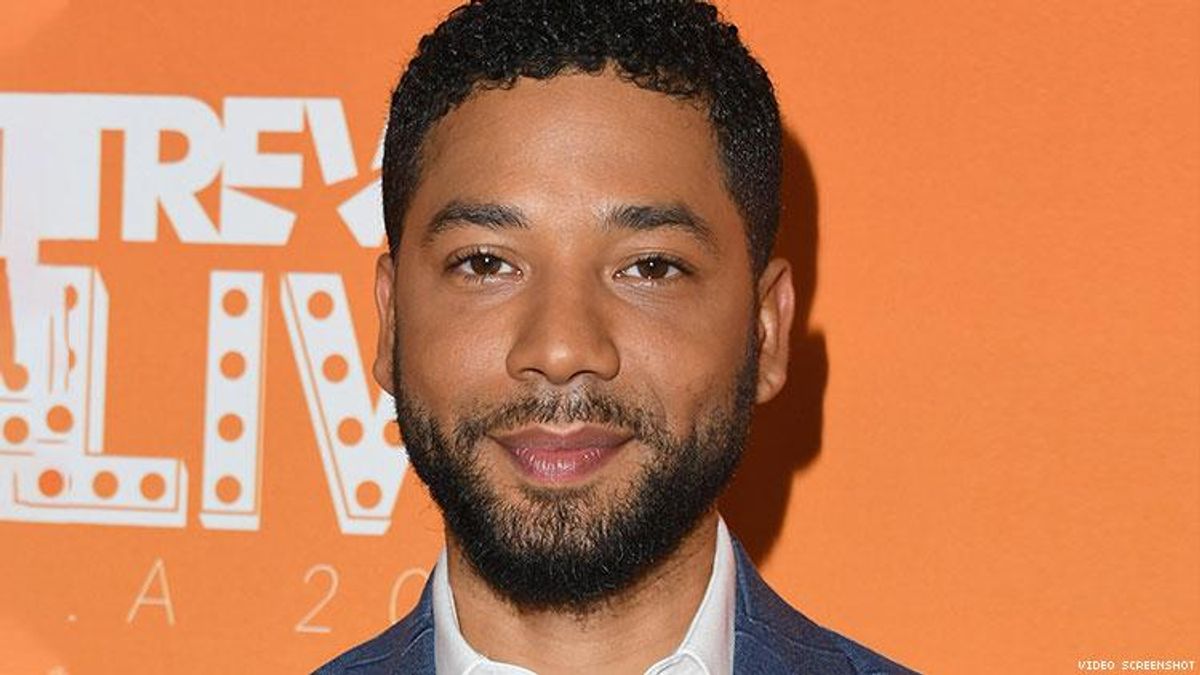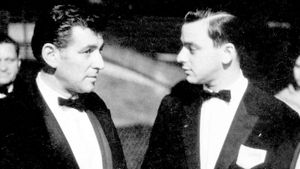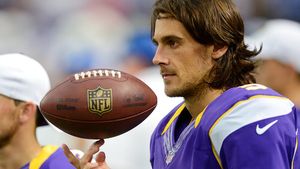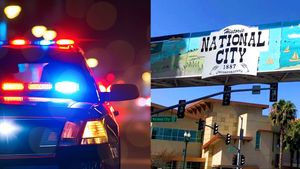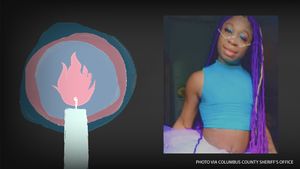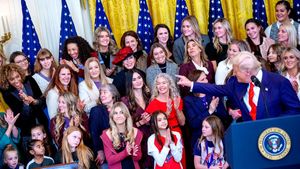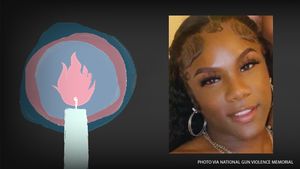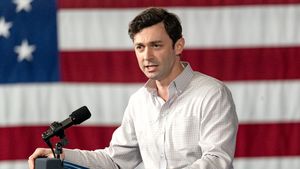The views represented in this op-ed are the author's own.
The sentiments of doubt cast at Jussie Smollett since he says he faced a homophobic and racist attack is disappointing, to say the least. Somehow, I thought, or at least hoped, society at large was at the point of believing victims, what with the enduring impact of the #MeToo movement. But what these seemingly malicious and unfounded rumors, criticisms, and allegations of deception lodged at the Empire actor tell me is that those of us perpetually at the bottom of the socio-cultural stepladder -- Black LGBTQ+ people -- still aren't granted the apparent, simplest of luxuries afforded our counterparts: the benefit of the doubt.
Smollett was assaulted in the early morning of January 29 on his way to grab food at a nearby Subway. Identified as "that f****t Empire n*****," he says he was attacked by two men who also put a noose around his neck and poured a clear liquid, believed to be bleach, on him. Simultaneously, they yelled this was "MAGA country." Brandon Z. Moore, Smollett's music manager, was on the phone with the actor during the attack and confirmed the language that Smollett says his assailants used.
"I was bruised, but my ribs were not cracked. They were not broken," Smollett said while speaking for the first time about the incident on stage February 2 at a previously-scheduled concert in West Hollywood. "I went to the doctor immediately. [Smollett's creative director who was at his apartment] Frank Gatson drove. I was not hospitalized. Both my doctors in L.A. and Chicago cleared me to perform, but said to take care obviously. And above all, I fought the fuck back."
The Chicago Police Department said at the onset that they are investigating the incident as a "possible hate crime." While plenty of surveillance footage has been reviewed, including proof that Smollett did return to the lobby of his apartment with a rope around his neck, nothing has yet been obtained that captures the attack itself. It was also confirmed that a letter was sent to the studio where Empire is filmed on January 22 addressed to Smollett filled with a white powder. The substance was later determined to be aspirin. The letter said "You will die Black fag" with a gun pointed toward a stick figure hanging from a noose. Police have not said if the two incidents are related, and so far they are being investigated separately. On January 30, officials released photos of two "persons of interest" who were in the general vicinity of where the attack took place.
As word continued to spread in the hours after the incident, countless celebrities and public officials expressed concern and support for Smollett, using #JusticeForJussie, including Empire director Lee Daniels, Congresswoman Maxine Waters, and Ellen DeGeneres and even Kevin Hart. Almost simultaneously, however, people began to voice their skepticism of Smollett's account on social media and beyond.
Some have snidely joked that the situation was probably a Grindr hookup gone wrong, Smollett directly responded Thursday in his first interview about the incident, by saying, "I so resent that narrative... That's ridiculous and it's offensive."
Others, particularly conservatives and Donald Trump supporters, have twisted the details of the incident to support a narrative that Smollett "pretend[ed] a polar vortex MAGA hate crime occurred," as tweeted by Fox News' Candace Owens. Still more found it questionable that the actor-singer did not turn over his phone to authorities when requested. (This week he did provide a copy of his phone records from within an hour of the attack to the police who have said it's "limited and heavily redacted," an effort Smollett's team said in a statement, "intended to protect the privacy of personal contacts or high-profile individuals not relevant to the attack.)
I suppose a healthy skepticism is warranted. As a journalist, our default is to question everything, and we've spent the better part of the last three years encouraging greater media literacy and uplifting the importance of independent verification and fact-checking in the fight against the proliferation of fake news. And it's not all that absurd to think that a celebrity might want attention so badly that they make up a story, especially one with such on-the-nose details, like two clearly racist, homophobic, white guys screaming this is "MAGA country." But many of the hot takes thus far don't seem to be constructive or with the intent of confirming what took place.
While it's important to allow police to investigate this case, it doesn't mean the Chicago Police Department doesn't need a healthy dose of skepticism itself, as it's headed by Eddie Johnson who in 2016, as a deputy chief, defended the fatal shooting of Rekia Boyd as a justified use of force, according to The Intercept. The subtle digs from the department noting that while Smollett is still being treated as the victim, he would be held responsible if he filed a false police report sure seems like a deliberate move.
What this seemingly pervasive hesitancy to believe Smollett says to me is that we as a country are still in denial. I think many of Smollett's detractors don't want to seriously grapple with the idea that our post "post-racial" society is in indeed still very racial, even in the liberal-presenting city of Chicago. My spirit tells me that, for some, it's easier to ignore that Donald Trump's presidency has thrown a rock at the beehive of white cis hetero patriarchy and supremacy hanging over our heads when the person being gay-bashed or having a noose placed around their neck isn't someone broadcast weekly into their living rooms. And for the Black LGBTQ+ folks among the naysayers, my gut says that it just hurts too much for us to be faced in such a public way with the reality that visibility alone doesn't guarantee our safety, and so we jest to deflect the true state of our lived experiences.
The facts are that hate crimes against LGBTQ+ people are on the rise, in number and severity, and the "normalization of hate violence," according the New York City Anti-Violence Project, contributes to some people not reporting. Considering the way Smollett has been treated, it's no wonder even he initially didn't want to contact the police or go public, a similar sentiment that's risen out of the #MeToo movement with people sharing stories of sexual, emotional, and physical abuse, in some instances, decades after it happened. And while it is possible and valid to reserve positive or negative comment until the police end their investigation, having faith in a legal system built on the subjugation of the very marginalized communities to which Smollett belongs seems somewhat futile.
I've decided to come from a place of believing people who say they've been victimized, especially when they're people of color and LGBTQ+ because we know that living at the intersections of multiple oppressions compounds the pressure of silence. So, the resulting courage it takes to speak up and out against individuals and the systems that enable and embolden them is insurmountable. It seems like I might be in the minority, but doing the opposite is what got us into our current socio-political shitstorm.
RELATED | Jussie Smollett's Attack Shows Visibility Doesn't Protect Us
